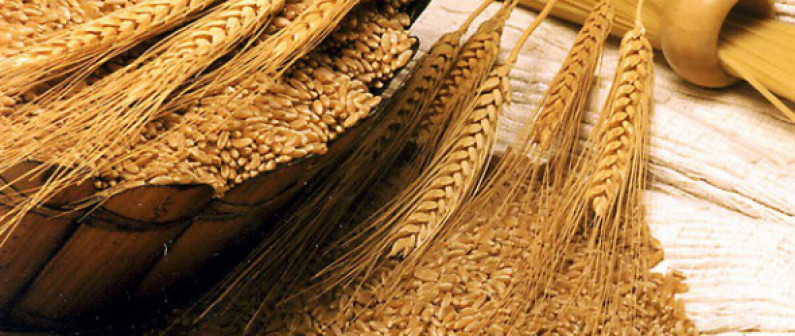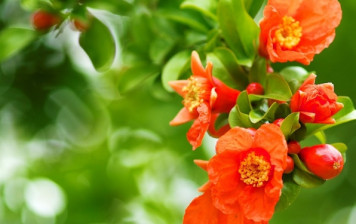
Fethullah Gulen
The intellectual laborers who will lay the foundations of the future are those fortunate ones who live the life of the soul. They are the champions of truth, submitting body to spirit. But they only appear indistinctly, faintly; whoever expects worldly pomp to announce their advent will be disappointed. Outwardly they are plain, but in their hearts burn countless bundles of incense giving off a variety of beautiful scents. It is difficult to speak of their beauty to those who have never known them, for: “He who does not taste does know.” (1) It would be easier lift a mountain than to introduce the ignorant to this spiritual joy.
These architects of our future do not know fame or glory, nor do they wish for position or status. They are content with the light of infinity within them. In their soul, the universe is illuminated, but they do not appropriate this light for their own benefit. They are dedicated to service, saying: “Our task is to pave walkways; let others walk comfortably. Our duty is to struggle; let the trophy go to others.” I wonder whether words can ever articulate the mystery of their essence.
Always modest and plain, they refuse any garrulous display and do not need special venues or high stages to proclaim their ideas. They communicate most effectively when deep feelings are reflected sincerely in their faces. Their essence is a lofty composite of matter and meaning; they do not reject their human nature but instead refine their body, as if it were lace work at the command of their spirit.
They endure suffering and do not know resentment. The flames of hatred and anger that threaten tolerance leave no trace on them. In the word of Yunus, they have no fists to punish the fighter, no tongue to answer the swearer, and no heart to be broken. Their soul is like a puzzle in which thousands of concerns and thousands of o
fit perfectly together. Although remarkably altruistic, they are indifferent to their own well-being. Inspired by the generous lives of the Prophets, they are preoccupied with the pleasures and sorrows of others. They exist wholly for others, not for themselves.
They are determined and diligent, neither beauty nor prosperity can distract them from their purpose. In their sight, prestige is a deceptive and unbalanced scale, status is as ephemeral as writing on ice, and wealth is worth no more than a heap of straw in the wind. They set their heart on unfading beauties, and fleeting things cannot attract their gaze. Even the beauties of Paradise cannot distract them from their purpose. They treat fame and repute with disdain. Every battle in the name of honor is like a comedy to them, every struggle for glory like a quixotic quest. They do not need any prizes or accolades, because they are content with the heavenly honor: “He has called you Muslims – who submit to God.” (2) To seek a glory beyond this would be an insult to our human essence.
They are the heroes of the heart: Their inwardness is radiant, their feelings are pure, their thoughts are sweet and well-ordered like a honeycomb, and their demeanor is like a paradise of peace. Anyone who encounters them finds happiness, and those who are far from them are far from peace. The architects of our future are free and unconfined; no mortal rope can bind their necks. For like pheasants, they already bear the most elegant mark: They have been bound to God. (3) In their captivity, they find freedom and say with the poet:
I have become a servant, become a servant, become a servant.
I have bowed to You and doubled myself.
Slaves rejoice when they are freed;
Whereas I rejoice when I become Your servant. (4)
Ambitions cannot pollute their intention, and lust can have no place in their world. Their nights are as pure as the morning; their days are pristine as Paradise.
For many years, our nation has waited heartsick for these architects to appear. We cannot know how much longer the wait will be. However, without losing hope, we will face the horizon and expect the sun to rise. We will continue to implore the Infinitely Merciful One; may He not prolong our time of waiting.
September 1980
Notes:
(1) A Turkish and Arabic proverb
(2) Qur’an, 22:78.
(3) Pheasants have a natural rope-like color on their neck. The author uses this allegory to signify total submission to God.
(4) Rumi (d. 1273), the great Sufi master and poet of the Turko-Persian tradition of the Anatolian Seljuks.
Source:
“A Fethullah Gülen Reader – So That Others May Live” Edited by Erkan Kurt. 2013. New York. Blue Dome Press. Pages 135-137.
Tags: Fethullah Gülen's philosophy | Golden generation |Related Articles

Is Gulen a Turkish nationalist?
Gülen has been defined as nationalist but when analyzed in detail it will be seen that he cannot be a nationalist for various reasons. First of all, as…

Love of God that leads to tolerance and compassion in Gülen’s Thought
Gülen defines “Muslim” as someone who conforms to his description of being tolerant. His view of Islam, simply put, is of a faith that exemplifies the principles which…

Fethullah Gülen: Our method against “hostility”
It is not possible for a believer to leave the circle of good manners, courtesy and decorum because his/her every behavior will be automatically attributed to Islam. If…
